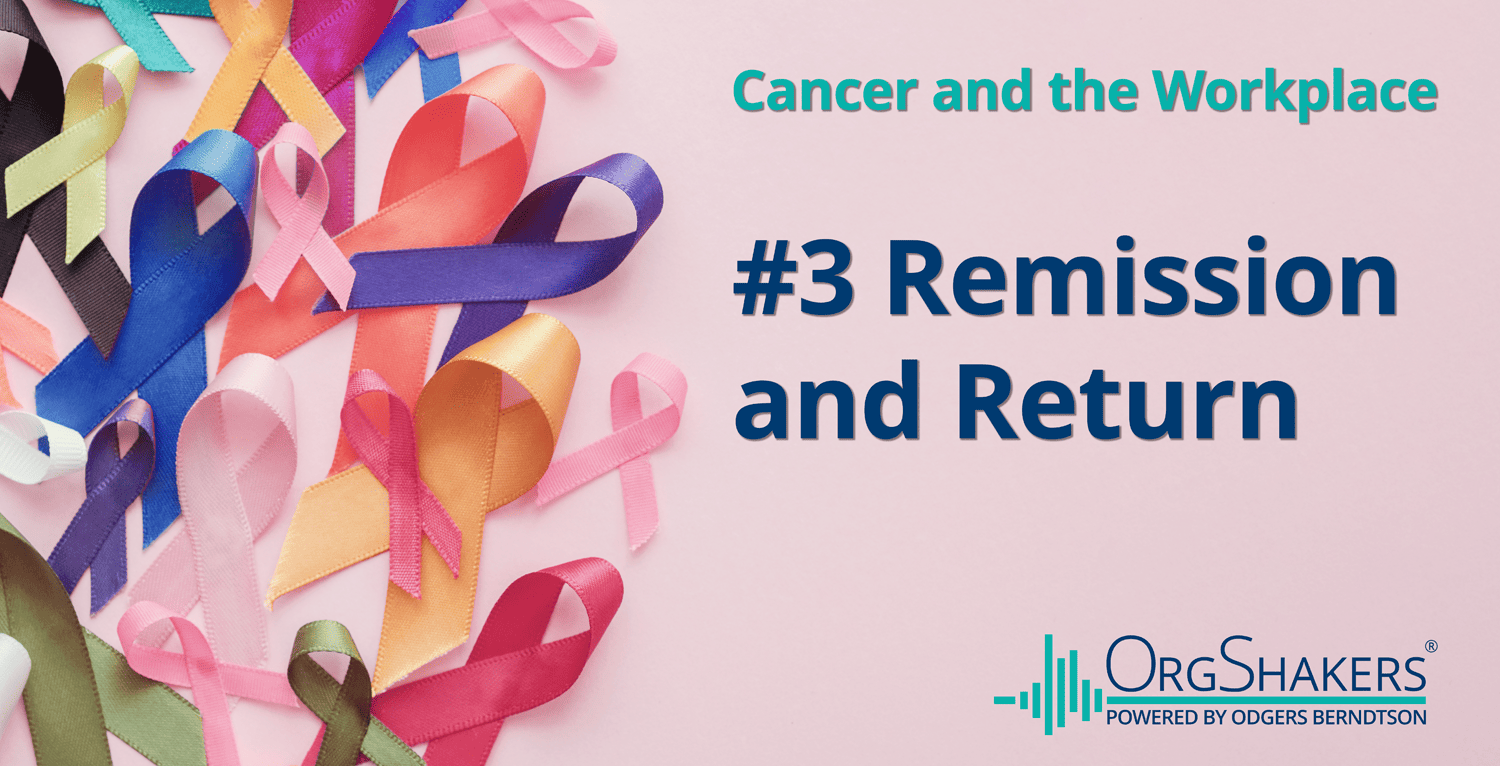Menu

Cancer and the Workplace: Part 3, Remission and Return
After the discovery and diagnosis and the treatment and recovery, the day finally came: remission. I partook in my last batch of radiotherapy after recovering from my operations, and then finally came the day that I was declared cancer-free.
Oftentimes this might be misconstrued as being back to the version of me I was before the cancer, but I don’t think that’s the case. Remission is what any cancer patient hopes to hear – it’s a sign that you can press play on your personal and professional life again. But it’s important to remember, especially for employers, that as someone begins to recalibrate back into their normal routine, ‘normalcy’ won’t be instantaneous. In fact, they may never be exactly how they were before, but it’s about offering those adjustments to help them transition back as smoothly as possible.
It will take some time for an employee to get their groove back; a great way of reintroducing someone back into work might be by starting them off on a part-time basis. Staggering their return can help get their body get used to the physical and mental stimulation that working requires. It also helps to set the pace; they are not expected to come back and dive right into the deep end.
And for those that do find themselves wanting to get stuck in, there is no harm in reintroducing responsibility bit by bit, just so that they can also see how they fare. The cancer may be gone, but its after-effects are stubborn and can linger. The returning employee may not be sure how much they are ready to take back on in one go, so in this case just being flexible to that can be a great way of ensuring that their return is as productive as possible for both the employee and the employer.
In addition to this, I have found that being able to talk to people who have gone through a similar experience – whether this be having cancer or having cared for someone with cancer – is always a really helpful way of adapting to life post-cancer. The little nuances of remission become things to bond over, and so employers who are able to signpost staff who have had cancer to support groups – or to other members of staff who have had similar experiences – will be helping them assimilate back into working life.
The OrgShakers team have been on this journey with me from beginning to end, and I have been so fortunate to feel that I was able to be honest and open about my entire cancer journey with them. This firsthand support, paired with their own experiences, has made our team experts when it comes to coaching executives and managers on how to properly and efficiently support team members with cancer at every step of their journey.
Every person’s experience with cancer is going to be unique, so when designing support policies around cancer in the workplace, use these as a guidance that can be flexibly applied on a case-by-case basis. This ensures that the individual’s needs are being met, and that they will be able to return as their best self when the time comes.
If you are an employer who is looking to craft or update their policies on cancer in the workplace, or looking for specialized training and workshops around this topic, then please feel free to reach out to me at therese@orgshakers.com



